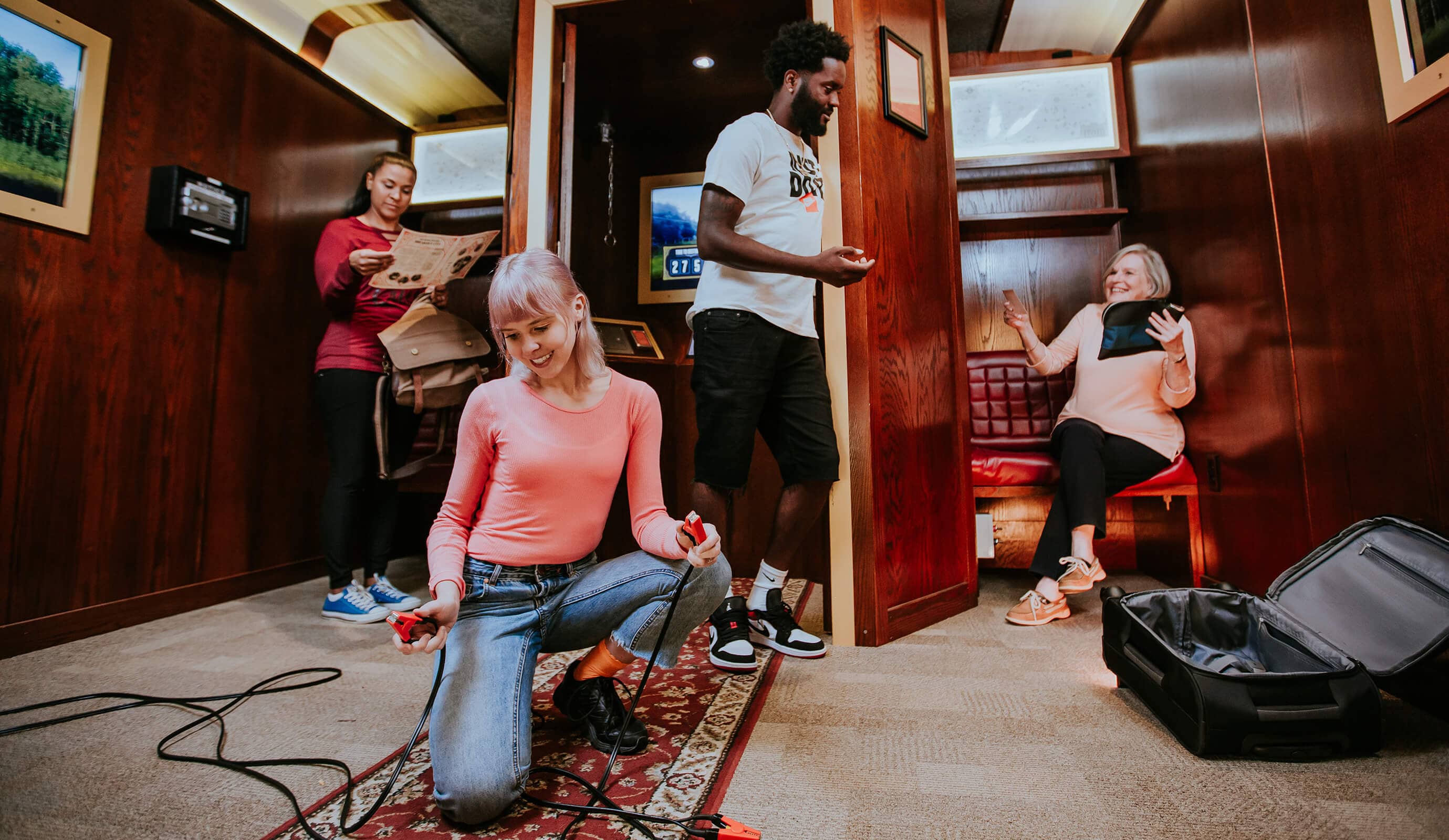Escape Room Minneapolis Mall of America-- Immersive and Enjoyable
Escape Room Minneapolis Mall of America-- Immersive and Enjoyable
Blog Article
Group Strategies: How to Team up Efficiently in a Retreat Area
Teams must proactively listen to each participant's insights, designate functions that align with private strengths, and preserve normal check-ins to guarantee emphasis and avoid redundancy. By cultivating an environment that values communication and adaptability, teams can dramatically increase their performance and success rates.
Establish Clear Interaction
To promote clear communication, it is important to designate a main point of get in touch with for information circulation. This role includes summarizing findings and proposed approaches to guarantee every person stays on the very same page. In addition, adopting a methodical approach to discussions can protect against chaotic exchanges. As an example, brief, focused updates from each employee can keep the team educated without overwhelming them with info.

Designate Roles Tactically
While clear communication establishes the foundation for reliable teamwork, designating duties tactically ensures that each group member's toughness are used effectively. In a getaway room situation, the time-sensitive and complex nature of difficulties demands a well-organized strategy to task delegation. By recognizing and leveraging private expertises, teams can enhance their problem-solving abilities and boost overall efficiency.
First, evaluate the distinct abilities and features of each participant. Somebody with an eager eye for information might stand out in discovering surprise things, while a sensible thinker can be better suited to fixing problems. It's just as important to have a leader who can manage progression, manage the timeline, and make decisive calls when needed. This function usually requires strong organizational and interpersonal skills.
Second, guarantee that functions are flexible and adaptable. As new challenges arise, the group has to have the ability to pivot, reapportioning tasks as needed. This adaptability helps maintain energy and stops traffic jams that can happen because of rigid role jobs.
Inevitably, a critical technique to function assignment not just makes the most of the strengths of each staff member however also cultivates a natural environment, driving the group in the direction of an effective getaway.
Utilize Diverse Abilities
Recognizing and taking advantage of the diverse abilities within your team can significantly raise your performance in a getaway room. Each team participant brings distinct toughness to the table, and efficiently leveraging these capacities can accelerate problem-solving and improve overall effectiveness. For example, an employee with strong logical abilities might stand out at decoding complicated codes or patterns, while an additional with keen empirical abilities article might quickly find surprise clues that others could overlook.
Encourage group participants to articulate their understandings and find this ideas quickly, guaranteeing that all prospective services are considered. Additionally, assigning jobs that straighten with each participant's staminas can avoid bottlenecks and ensure that progress is continuous.
Moreover, variety in abilities commonly equates to diversity in assuming designs, which is vital in a getaway space setting. While some obstacles might need rational thinking and accuracy, others might profit from imaginative and association of ideas. By acknowledging and leveraging this diversity, groups can attend to a broader variety of difficulties better, therefore increasing their possibilities of an effective getaway.
Manage Time Efficiently

Recognize noticeable challenges and divide jobs based on team participants' staminas, guaranteeing that nobody is still. This practice can aid keep the team concentrated and avoid time from sliding away unnoticed.
Additionally, avoid passage vision. If a challenge is taking too long, revolve employee or proceed to an additional difficulty, returning later on with fresh point of views. Communication is extremely important-- keep every person updated on solved challenges and remaining jobs to stay clear of redundant initiatives.
Finally, make use of any tips or clues moderately yet tactically - best escape room. Recognizing when to request aid can save beneficial time. By adhering to these time monitoring principles, teams can significantly enhance their opportunities of a successful and delightful escape space experience
Debrief and Mirror
Reflection is a necessary aspect of team growth and improvement in the context of escape spaces. Once the difficulty is finished, whether efficiently or not, it is vital for the team to involve in a structured debriefing session. This process enables staff member to analyze their performance, identify staminas, and determine areas for enhancement.
Start the debrief by reviewing what worked out. Highlight specific instances of efficient interaction, analytic, and collaboration. Identifying these favorable behaviors strengthens them and motivates their repeating in future obstacles.
Talk about moments of confusion, miscommunication, or inefficient techniques. Motivate an open and constructive dialogue where team members can share their viewpoints without anxiety of objection.
Verdict
To conclude, successful collaboration in an escape room read is predicated upon clear communication, tactical function projects, the efficient usage of diverse skills, and proficient time monitoring. Normal check-ins and organized debriefings are crucial for keeping focus and fostering continual renovation. By developing a natural and adaptive team setting, the probability of effectively fixing puzzles and achieving the purpose of getting away the space is considerably enhanced. This method not only makes certain success but additionally promotes collective growth and understanding.
Report this page